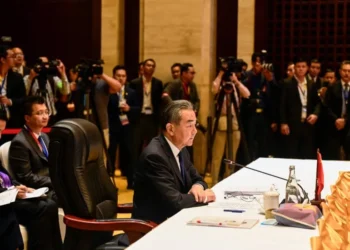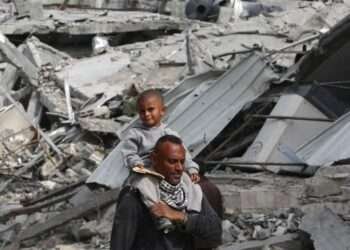The U.N. High Commissioner for Refugees, Filippo Grandi has urged the international community not to forget the plight of ethnic Rohingya refugees from Myanmar in the midst of many other world crises.
Speaking on the sidelines of a regional meeting on Rohingya refugee assistance in Bangkok, Grandi noted that more support is needed to help the displaced Rohingya as well as to relieve the burden on the countries hosting them.
The meeting was attended by delegates from Bangladesh, Britain, India, Indonesia, Malaysia, Thailand and the United States, as well as representatives of Rohingya-led organizations.
Babar Baloch, a UN Spokesperson, disclosed that there was no representative from Myanmar.
Grandi said that providing humanitarian assistance is becoming increasingly difficult because of the continuing armed conflict in Myanmar and reduced funding and aid due to the other crises, including in Afghanistan, Ukraine and the Middle East.
Grandi said that financial contributions for Rohingya relief have declined, and the U.N.’s mission plan for this year is “barely 40% funded,” a sharp drop from about 60%-70% in previous years.

“This is a crisis that should not be forgotten… If contributions decline, we are in trouble,” Grandi averred.
He iterated that the situation greatly impacts countries that are “suffering from the enormous burden” of hosting Rohingya refugees awaiting repatriation or resettlement.
The U.N. High Commissioner for Refugees added, “Something has got to change here. Otherwise, really, I’m worried about the future of Rohingya refugees and the patience of the host country in hosting them.”
“What I have asked the participants in this meeting is to make big pledges in support of the Rohingya refugees: open policies for the host countries, contributions for the donor countries and for everybody else across the world, and attention by the international community.”
Filippo Grandi
He emphasized that “voluntary, dignified return to Myanmar” by the Rohingya refugees is the most desirable solution, but acknowledged there are “many challenges that need to be overcome.”
Grandi said that repatriation to Myanmar was still “Plan A.”
“Plan B is the status quo, people continue to be in host countries… but this is not sustainable in the long term,” Grandi added.
The Rohingya, who are Muslim, face widespread discrimination in Buddhist-majority Myanmar, with most denied citizenship and many other rights.
More than 1 million Rohingya refugees have fled from Myanmar to Bangladesh over several decades, including about 740,000 who crossed the border starting in August 2017, when Myanmar’s military launched a brutal counterinsurgency operation following attacks by a guerrilla group.
UK Minister Pledges 4.5 Million Pounds In Humanitarian Assistance For Rohingya Refugees
U.K Minister for the Indo-Pacific, Anne-Marie Trevelyan, announced 4.5 million pounds in additional funding from her nation to provide humanitarian services to Rohingya refugees and host communities in Bangladesh, Britain’s Foreign Office said in a statement.
“The UK is committed to finding a long-term solution to the Rohingya crisis. This includes their safe, voluntary and dignified return to Myanmar, when the conditions there allow,” Trevelyan said in a statement.
“Until the Rohingya can safely return to their homeland, we are committed to providing ongoing humanitarian support,” Trevelyan added.
The aid package of £4.5 million comprises several components such as Healthcare and Clean Energy, Protection and Support, as well as Gender-Based Violence prevention.
From the pledged amount, £2.1 million through the International Organisation for Migration (IOM) will support healthcare and clean energy for Rohingya refugees and their host communities.
A total of £2 million will be distributed through various non-governmental organizations, including the Norwegian Refugee Council, Danish Refugee Council, International Rescue Committee, and Humanity and Inclusion, to bolster the protection of refugees and host communities.
Also, an allocation of £450,000 through the UN Population Fund (UNFPA) aims to prevent and respond to gender-based violence and provide sexual and reproductive health services.
READ ALSO: Palestinian Rights Groups Call For Halt Of Attacks On Gaza





















